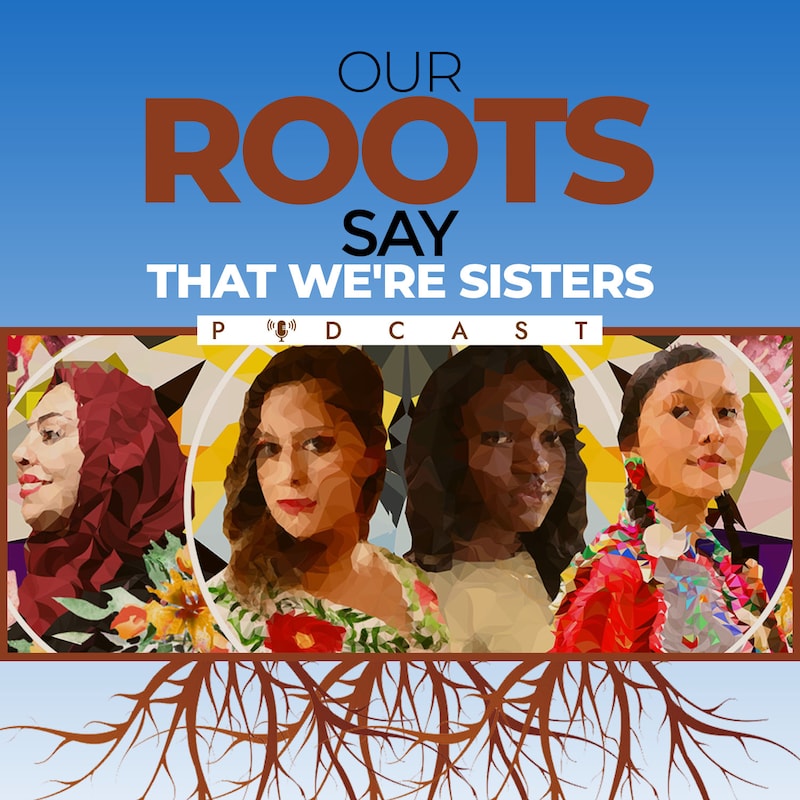In this episode, host Sheena Carey interviews Dr. Anita Manogaran, who is an Associate Professor of Biological Sciences at Marquette University. Dr. Manogaran has faced challenges with representation throughout her career as a woman of color in STEM. Despite the lack of diversity she experienced growing up, she remained determined to succeed and found mentors along the way that helped her to realize her potential.
Dr. Manogaran now strives to pay it forward by serving as a mentor for students, particularly first-generation college students and women in science. The mural on Marquette's campus has been meaningful for her as it represents progress in terms of inclusion and diversity within the university community.
Tune in to listen to Dr. Manogaran talk about how the collegial atmosphere and support of other women has impacted her sense of self-worth. She also discusses the importance of self-care, wellness, and balance in one's life. She hopes to impact future generations by instilling confidence in them that they can achieve anything they set their minds to despite any adversity or failures along the way.
Episode Highlight
5:47 - My goal was to be their cheerleader, right? And say, "You know what? If you fail, it's okay. Just get up, dust yourself off, and try again. Everyone has to try again. You learn from failure.
11:23 - It took that long for me to see representation in my own community that was actually integrated as part of art. So, I think it's extremely important that we have it, not only for new girls, young women on campus who are minorities, but for everyone to see that this is actually part of our culture.
20:57 - The first two years are so critical, especially for women minority students. We see so much attrition, and just providing them the mentorship resources because that's what they need.
Interview
What is the story you'd like to share?
1:24 - My story, I think, is one that I think about is representation. A story of seeing people who look like you, cheering people that look like you, and experiencing the experiences of people who look like you.
How did you get on this path of Associate Professor of Biological Sciences STEM field that doesn't have a whole lot of women representation?
3:46 - It's those key mentors. Those people that were just pivotal in whispering in your ear and saying, "Just ignore all the noise and push forward."
How would you say your identity has influenced the choices that you've made?
6:40 - The identity as a woman, identity as a minority of someone that doesn't look like everyone else, takes a lot of confidence and it took a while to build that up.
Does the discipline give you that freedom to fail as a woman, as an underrepresented individual within that field?
8:30 - I just recently learned this that in science, there's no wrong answers. It's just experiments that don't support your hypotheses, and so then you just try again.
What are some of the ways that Marquette has impacted your sense of self-worth?
12:02 - When you go out in the real world and you start experiencing other places, and different ways of people, how they do science, how they interact with each other, it really made me realize how special Marquette was, especially, in our area of Biological Sciences, it was really a collegial atmosphere. It was very supportive. And going into a department that had almost 50% women at the time was a game changer to me.
This year's forum, the theme was a around self care, wellness, healing, how do you understand or practice or experience well-being and wellness?
15:36 - It's okay not to be completely involved in everything because that time to reflect, time to heal, time to make sure that you're mentally and physically okay is such an important part.
What impact do you hope to have on women of color that are coming behind you, that may have gone before you?
17:06 - It's all about self-confidence and self-care, and you can do it. Failure is okay.
18:03 - It's when we give up that things kind of end up falling around us.
What are your hopes?
19:20 - I think there's not one answer, but there's so many different ways. I mean, as a scientist, we're interested in understanding protein aggregation diseases, and there's a subset that we work with that affects African-American populations. We're very interested in how that works. We're interested in kind of neurodegeneration. As a scientist, unlocking some of those mysteries is what keeps me going absolutely.
19:50 - For my graduate students, my goal for them is to provide them with a network so that they can succeed, making sure that our graduate students have the resources so that they can really compete in the workforce, right? Especially women in science, I always think of.
What would you like our community to know about you and your journey if they were to walk away from this podcast with one thing about Dr. Anita Manogaran?
22:05 - If you're not represented or if you don't have representation, find your network.
Contact information:
Dr. Anita Manogaran
Department of Biological Sciences
Wehr Life Sciences, 313
(414) 288-4580
anita.manogaran@marquette.edu
http://www.marquette.edu/diversity/
Credits:
The Our Roots Say That We're Sisters Podcast series was recorded and produced by Podcast Town (www.podcasttown.net)
